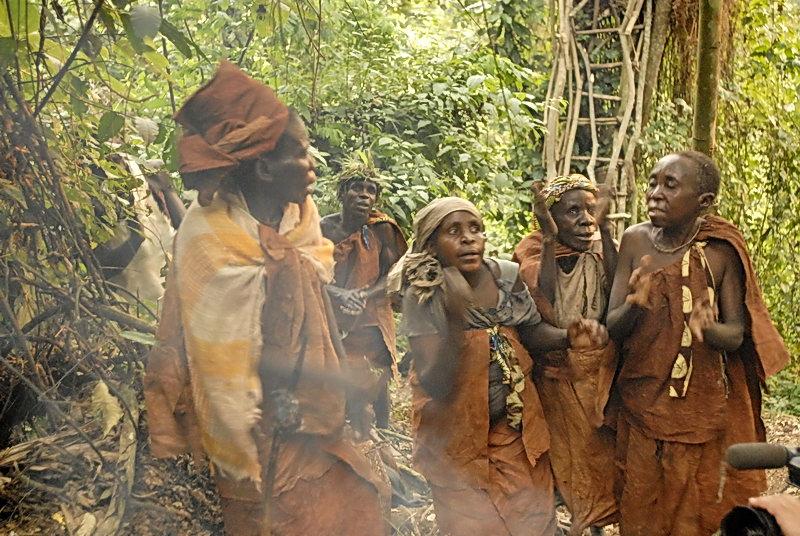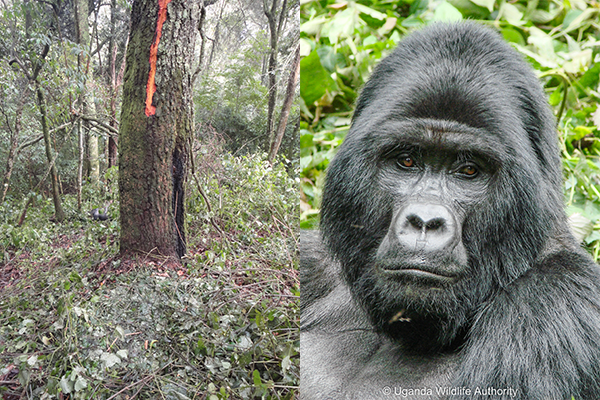by Brenda Boonabaana (ELP 2016) | Academic Staff and Researcher, Makerere University, Uganda
Renowned for its exotic plants and animals, the Bwindi Impenetrable National Park in South-Western Uganda is home to more than half of the world's endangered mountain gorillas (about 340 in total). Prior to conversion of the forest to a National Park in the early 90s, Bwindi provided critical livelihood opportunities for communities living in and close to the forest. For the pygmy/Batwa indigenous group, the forest was even home. However, Batwa were niether consulted in decision-making processes nor compensated for their displacement from Bwindi forest.
Batwa women in a forest environment in Uganda. Source: http://www.batwaexperience.com/batwa-experience-history
Batwa currently live on small unproductive plots of land near the forests donated by a Christian NGO - the Kellermann Foundation that was established by Californian missionaries, Dr. Scott and Carol Kellermann. Batwa live under extreme poverty with alarming human development indicators such as a life expectancy of 28 years compared to the national average of nearly 60 years. With an estimated population of 3,500, Batwa have now been reduced to beggars, cheap manual laborers and squatters. There is need to promote sustainable conservation solutions where both wildlife and people are valued and given the right support. No wonder wildlife-human conflicts continute to destabilize the management of wildlife resources in the country through illegal poaching and extraction, that has created an 'us versus them' dichotomy between the communities and resource managers.
Silverback gorilla in Bwindi Impenetrable National Park.
With such conservation challenges at hand, my participation in the Beahrs Environmental Leadership Program was very timely. The course has equipped me with world class knowledge and skills that will help me to solve some of the conservation challenges. Particularly, I am better positioned to engage communities, facilitate stakeholder meetings, negotiation and conflict resolution as well as communication to influence sustainable conservation outcomes. The aspect of Facilitative Enterprise Development using teh strategic planning model was very useful. The component on agro-ecology was very crucial in providing an understanding of how to engage with agroecological enterprises that have potential to provide alternative livelihoods for people living near conservation areas. Other topics like marketing and project management were very enriching. I was able to draw lessons from fellow participants' experiences from all over the world and figure out how these lessons can be applied in my country to promote sustainable conservation of wildlife resources that balances the needs of wilflife and the communities.
The course challenged me to do more in the area of conservation through research and community outreach in order to provide cutting edge solutions. I can say that my 3-week stay at UC Berkeley was very timely, inspiring and transformative. I go back to Uganda empowered to influence positive change in the area of conservation.


